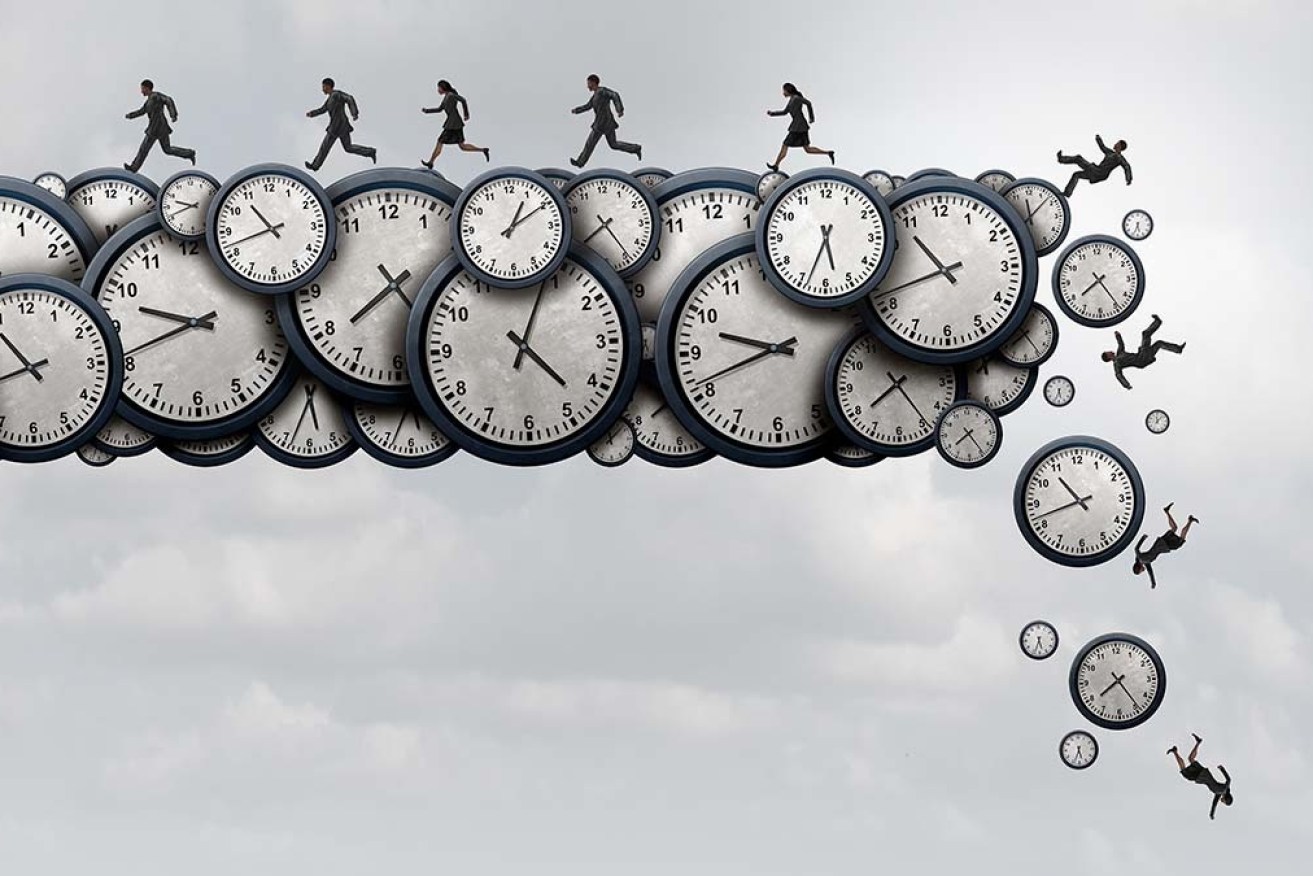One-third of Australians experience chronic time stress. Here’s how to manage it


Higher levels of time stress correlate with worse mental health, lower self-rated health, less exercise and lower life satisfaction. Photo: Getty
Feel like you’re constantly running out of time to do things? You are most definitely not alone.
In fact, about one-third of Australians experience chronic time stress, according to a new survey from the University of Melbourne.
The annual Household, Income and Labour Dynamics in Australia (HILDA) survey of 17,000 people has been following Australians’ perceptions of their time stress since 2001.
This particular type of stress is defined as feeling like you don’t have enough time to do all your tasks. This can apply to both your professional and personal life.
The survey found that higher levels of time stress are correlated with worse mental health, lower self-rated health, less exercise and lower life satisfaction.
More women under time stress than men
“What stood out is women have much higher levels of time stress, averaging around 40 per cent compared to about 29 per cent of men,” Dr Ferdi Botha, survey co-author, told The New Daily.
To be exact, 38 per cent of women surveyed said they felt chronically time-stressed.
That means they felt rushed for time “often” or “almost always”, which is “virtually unchanged” compared to the 2001 HILDA survey results.
Rates of chronic time stress declined for men this year, with 29 per cent reporting it compared to 34 per cent in 2001.
Although the survey results did not include how people used their actual time, a 2006 survey on time use from the Australian Bureau of Statistics found women spend more time on household commitments.
This could suggest why women reported feeling more chronically time-stressed than men.
Over-60s the least time-stressed
The most chronically time-stressed people in Australia are the 35 to 44 age group, where almost half reported experiencing it.
“Essentially, it’s people who are at a working age who are by far the most time-stressed,” Dr Botha said.
“Not surprisingly, we’re seeing people aged 65 and older experiencing much lower levels of time stress as most of them are retired.”
About 13 per cent of the age group reported feeling chronically time-stressed.
What you can do
There are ways to manage time stress, but it’s important to acknowledge that everyone’s situation is different.
“We’ve always got to be mindful that people’s life circumstances vary and they might not have control over it,” Dr Grant Blashki, lead clinical adviser at Beyond Blue, told The New Daily.
“Maybe they have young kids or they’re just desperately trying to make ends meet. So the last thing they need is someone saying, ‘Oh you need to manage your time better’.”
Sometimes life circumstances trump efforts to improve wellbeing.
That said, if you are in a position to make some changes then there are many things you can do to try and manage your time.
- Keep a diary that tracks your movements for the week so you can understand and reflect on how you’re spending your time each day
- Be really clear on what matters to you and prioritise that
- Use your energy on what you prioritise most
- Make a Not-To-Do list of things you should stop doing, such as procrastinating
- Let time flow between tasks, so avoid mindless online scrolling that can make you feel swamped
- Practise saying “no” early and be firm about it.
In terms of housework, Dr Blashki recommended delegating where possible.
Can your partner or kids step up and help around the home?
Can your extended family support you by picking up the children from school and looking after them once or twice a week?
“Most importantly, don’t leave your free, recreational and health time to chance,” Dr Blashki said.
“Schedule it properly in your diary so you’re not pushing these things aside until you finish work.”
Catching up with friends, making time for heathier meals over takeaway, and exercising all contribute to good mental health.








